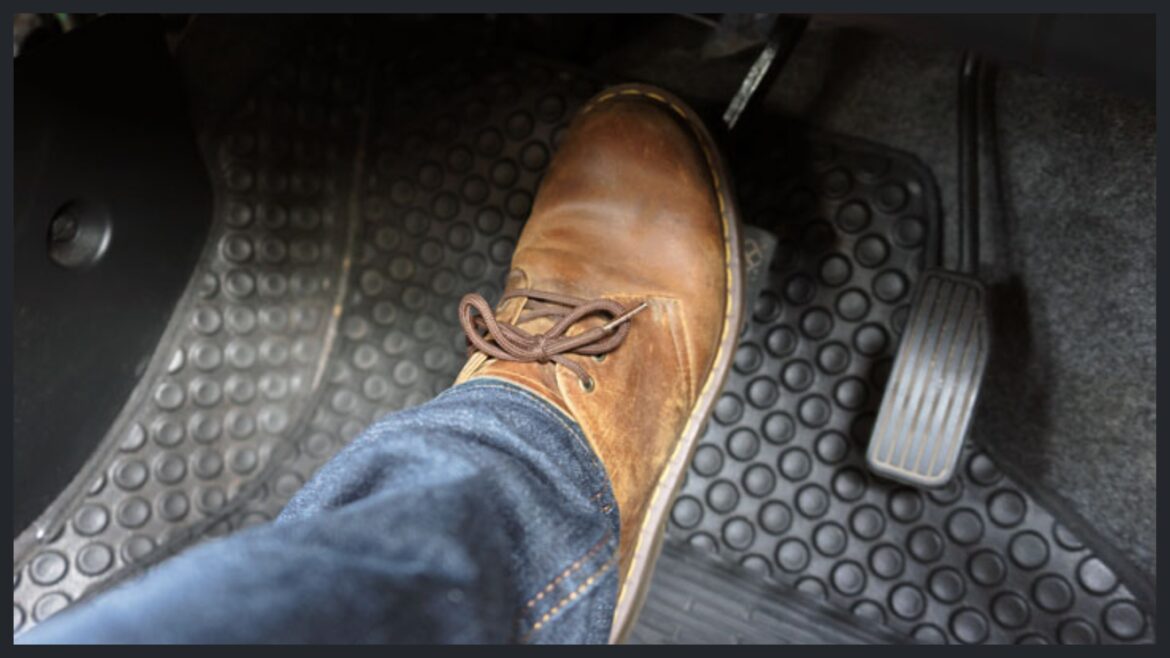5 Causes of Brakes Locking Up While Driving
We take our brakes for granted that they are working properly, but sometimes braking problems occur. If your car’s brakes suddenly lock up, a dangerous situation can occur. Learn what causes your brakes to lock up while driving, what to do in this situation, and how to resolve the issue so it doesn’t happen again.
What does it mean for brakes to “lock up”? The simplest way to define brake lockup refers to a situation where the brakes on your vehicle are applied but don’t release as expected. This is a serious situation in either case, but especially if it occurs while driving. In the worst case scenario, it can result in an accident.
Contrary to popular belief, brakes locking up does not necessarily mean that your vehicle’s brakes are clamped down tight enough to completely lock the wheels.
By definition, the term “brake lockup” can be used to describe a situation where your vehicle’s brakes do not return to their “rest position” when you press the pedal.
What causes brakes to lock up while driving? Brake lock-ups are no longer as common as they were in the days before modern ABS brakes were introduced, but such issues still occur from time to time. The majority of these issues are caused by brake system components that are severely worn or damaged.
The most common causes of vehicle brakes locking up while driving are:
1. Using the wrong brake fluid
2. Overheated brake system components
3. Damaged or badly worn brake pads, calipers, or rotors
4. Damaged or severely worn brake drums, brake shoes, or wheel cylinders
5. Handbrake malfunction
6. Stuck brake calipers or wheel cylinders
What should I do if my brakes lock up while I’m driving?
If your brakes lock up while you’re driving, it can be a big problem. However, there are some important steps you can follow to prevent a bad situation from getting even worse. These steps are:
1) Don’t panic
The most important thing to remember if your brakes are blocked is to never panic.
It may sound easier said than done, but you also have a responsibility to do everything in your power to protect your passengers and other drivers around you. Panic takes away your ability to think about what next steps to take.
2) Find a place to stop
The next consideration is finding a safe place to stop. Quickly scan your surroundings to see what’s available. A parking lot, a wide driveway, or even an open shoulder are good places for this.
3) Carefully pull off the road
Once you’ve decided where to stop, pull off the road as carefully as possible. It’s a bit difficult at the moment, but take into account the traffic around you. If you need to change lanes, signal if possible. Be aware that making the wrong decision at this point could lead to an even worse situation.
4) Stop and apply the handbrake if necessary.
After you have left the road, bring your car to a stop as carefully as possible. If your car seems to be pulling to one side, pulling the handbrake may stabilise it. However, it is important to remember that pulling the handbrake at high speeds can be dangerous.
5) Have the vehicle towed for repairs
After brake lock occurs, the vehicle should not be driven under any circumstances until repairs have been properly completed. The vehicle should be towed to a designated repair location, even if only for a short distance.
How to repair locked brakes
After brake lock occurs, it is important to determine the root cause of such failure. This often requires a thorough visual inspection.
The front and rear brakes of the vehicle should be inspected for signs of irregular wear or damaged parts. Any defects identified during this inspection must be corrected before the affected vehicle can be returned to service.
Brake system failures can often be identified by a burning smell, excessive brake dust, or blue discoloration of the system’s corresponding brake discs or drums. If signs of this type are present, all brake components at that wheel end should be replaced.
Additionally, it may be reasonable to replace the same components at opposite wheel ends on the same axle. At a minimum, brake pads on individual axles should always be replaced in pairs. In extreme cases, overheating due to brake lock-up can actually damage the wheel bearings on the affected wheel end, necessitating subsequent replacement.
Once all repairs have been completed, an initial brake test should be performed in a secluded location, such as a parking lot or driveway, if possible.
- If everything seems to be in working order, a more thorough test drive can be performed on a nearby road.
- If further problems arise, abort the test drive for further evaluation.
- If for any reason you are unsure about repairing your vehicle’s brakes after they lock up, seek professional advice. There’s no shame in getting a second opinion or opting for a professional repair. After all, your life literally depends on the functionality of your car’s braking system.

